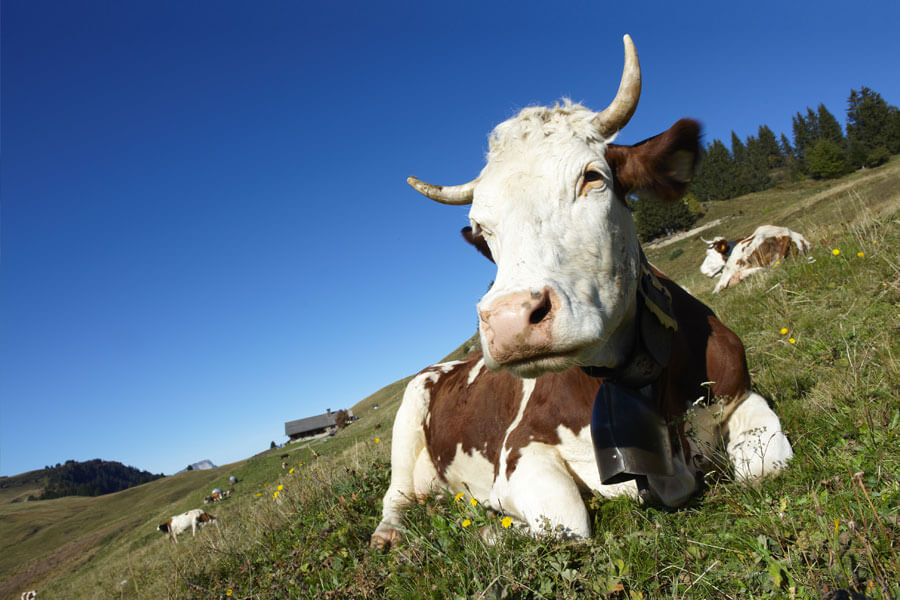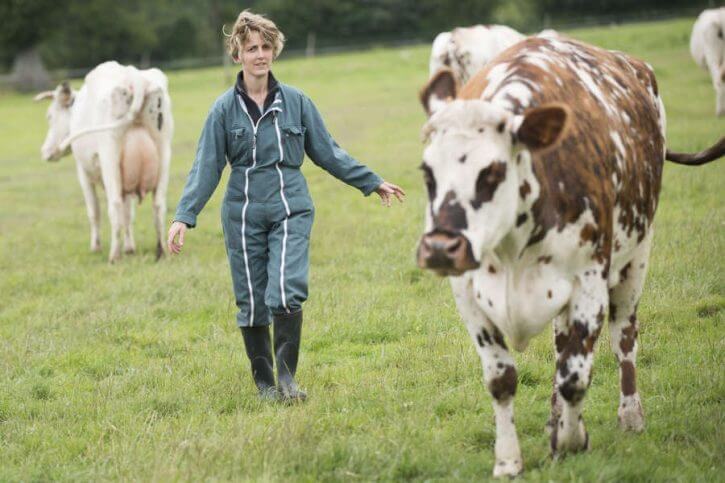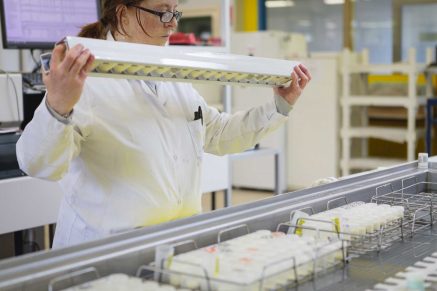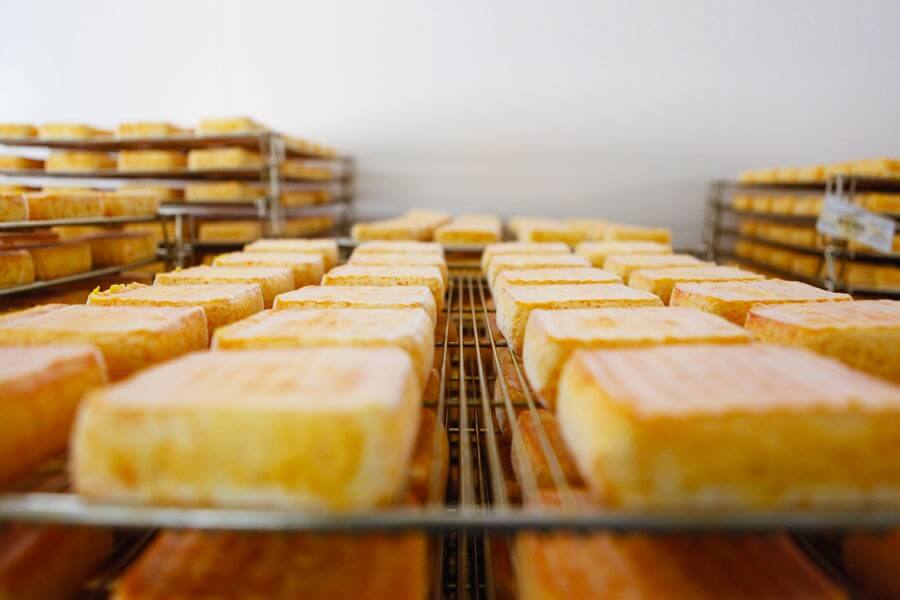
PRIORITISE ANIMAL WELL-BEING AND PROTECT THE ENVIRONMENT
Responsible production
Today’s consumers not only want the best quality products, they are also attentive to production methods and environmental impacts. It is therefore imperative that we promote practices to reduce CO2 emissions and uphold the highest standards in animal welfare.
THE SOURCE OF OUR PRIDE


Aware of its environmental impact, the French dairy sector has steadily been reducing greenhouse gas emissions (GHGs) since 1990. The Low Carbon Dairy Farm initiative has been supporting dairy farms to identify tailored solutions to reduce their carbon footprint since its introduction in 2015.
Farmers care deeply about the well-being of their herds and go to great lengths to respect the five ‘freedoms’ developed by the World Organisation for Animal Health (WOAH).
The majority of French dairy farmers operates small farms (69 cows per farm on average) and work hard to ensure the well-being of each animal. Among French dairy farmers, 97% adhere to the Charter of Good Practice for Animal Farming, conceived to help farmers optimise farming practices and meet the demands of the supply chain and the public. The charter guarantees the traceability and health of herds, notably ensuring cattle have access to good quality feed.
Farmers care deeply about the well-being of their herds and go to great lengths to respect the five ‘freedoms’ developed by the World Organisation for Animal Health (WOAH).
The majority of French dairy farmers operates small farms (69 cows per farm on average) and work hard to ensure the well-being of each animal. Among French dairy farmers, 97% adhere to the Charter of Good Practice for Animal Farming, conceived to help farmers optimise farming practices and meet the demands of the supply chain and the public. The charter guarantees the traceability and health of herds, notably ensuring cattle have access to good quality feed.
THE INDUSTRY TODAY
97%
97% of farmers adhere to the Charter of Good Practice for Animal Farming. Each farm is audited at least once every 3 years by a state-appointed expert veterinarian.
- 23,8%
-23.8% reduction in greenhouse gas emissions during the period 1990-2010.
STRIVING FOR THE FUTURE The French dairy sector has always placed animal welfare at the heart of its operations, considering it a prerequisite for breeding activity. Under the France Terre de Lait initiative, indicators have been introduced to assess the well-being of dairy herds, based upon the five fundamental freedoms for animals. In France 100% of dairy farms are audited.
The French dairy sector has always placed animal welfare at the heart of its operations, considering it a prerequisite for breeding activity. Under the France Terre de Lait initiative, indicators have been introduced to assess the well-being of dairy herds, based upon the five fundamental freedoms for animals. In France 100% of dairy farms are audited.
A number of solutions and measures exist to reduce the impact of dairy farming on climate change, including training in carbon diagnostics, advice and support, sharing best practices and a national network of carbon advisors. Over 18,000 dairy farms are engaged in the Low Carbon Dairy Farm initiative. Our aim is to convince all dairy farmers to join the initiative by 2030.
 The French dairy sector has always placed animal welfare at the heart of its operations, considering it a prerequisite for breeding activity. Under the France Terre de Lait initiative, indicators have been introduced to assess the well-being of dairy herds, based upon the five fundamental freedoms for animals. In France 100% of dairy farms are audited.
The French dairy sector has always placed animal welfare at the heart of its operations, considering it a prerequisite for breeding activity. Under the France Terre de Lait initiative, indicators have been introduced to assess the well-being of dairy herds, based upon the five fundamental freedoms for animals. In France 100% of dairy farms are audited.A number of solutions and measures exist to reduce the impact of dairy farming on climate change, including training in carbon diagnostics, advice and support, sharing best practices and a national network of carbon advisors. Over 18,000 dairy farms are engaged in the Low Carbon Dairy Farm initiative. Our aim is to convince all dairy farmers to join the initiative by 2030.
OUR PRIORITIES
Evaluate herd well-being
Promote low carbon farms
Compensate the financial cost of reducing GHGs

To go further




